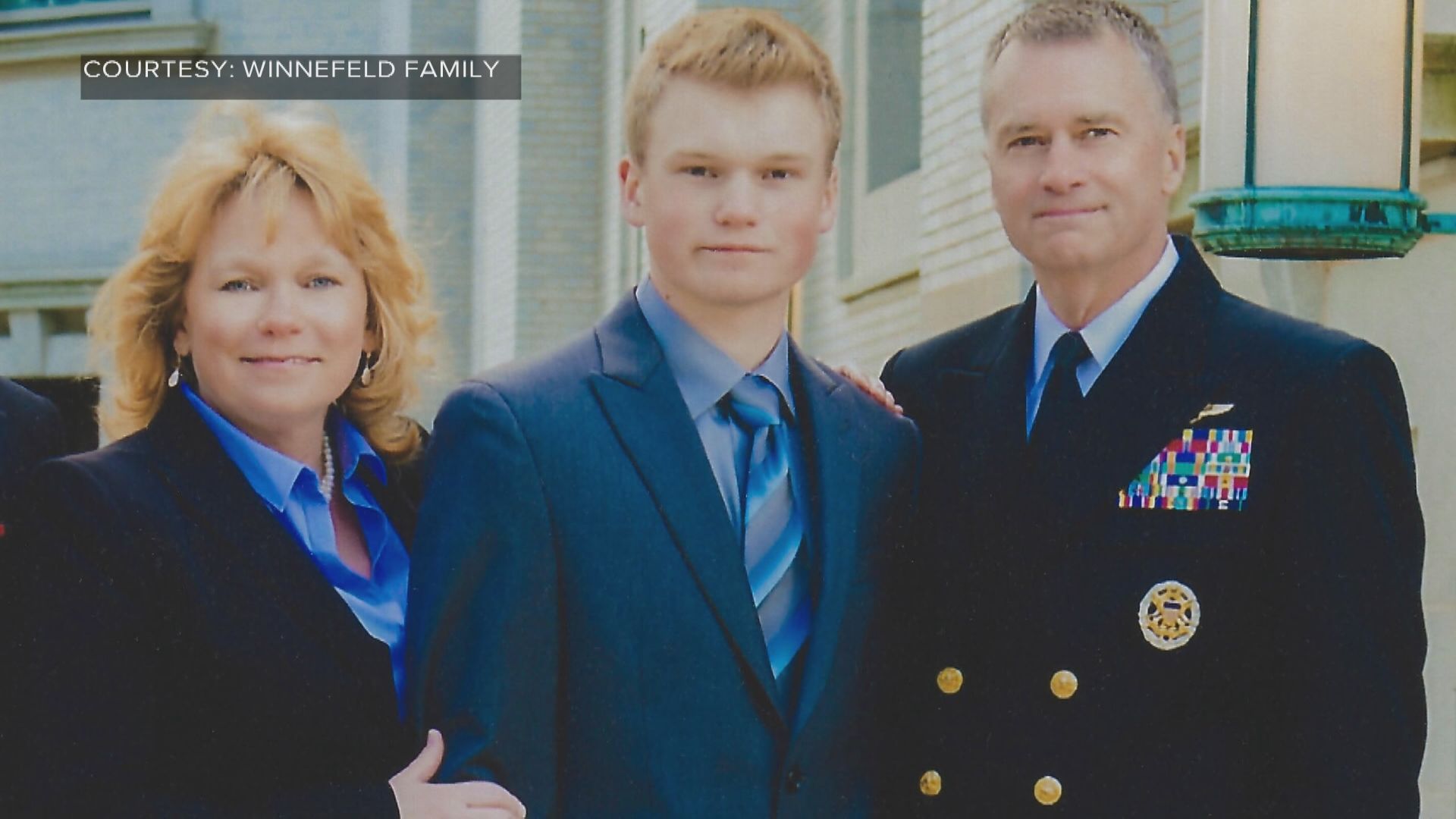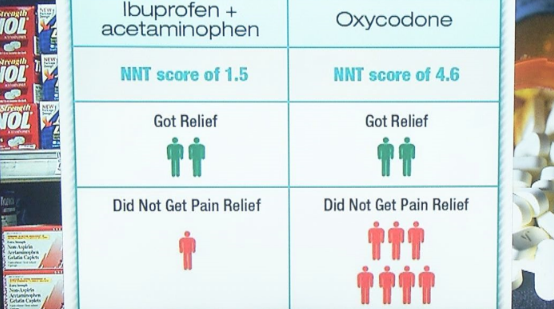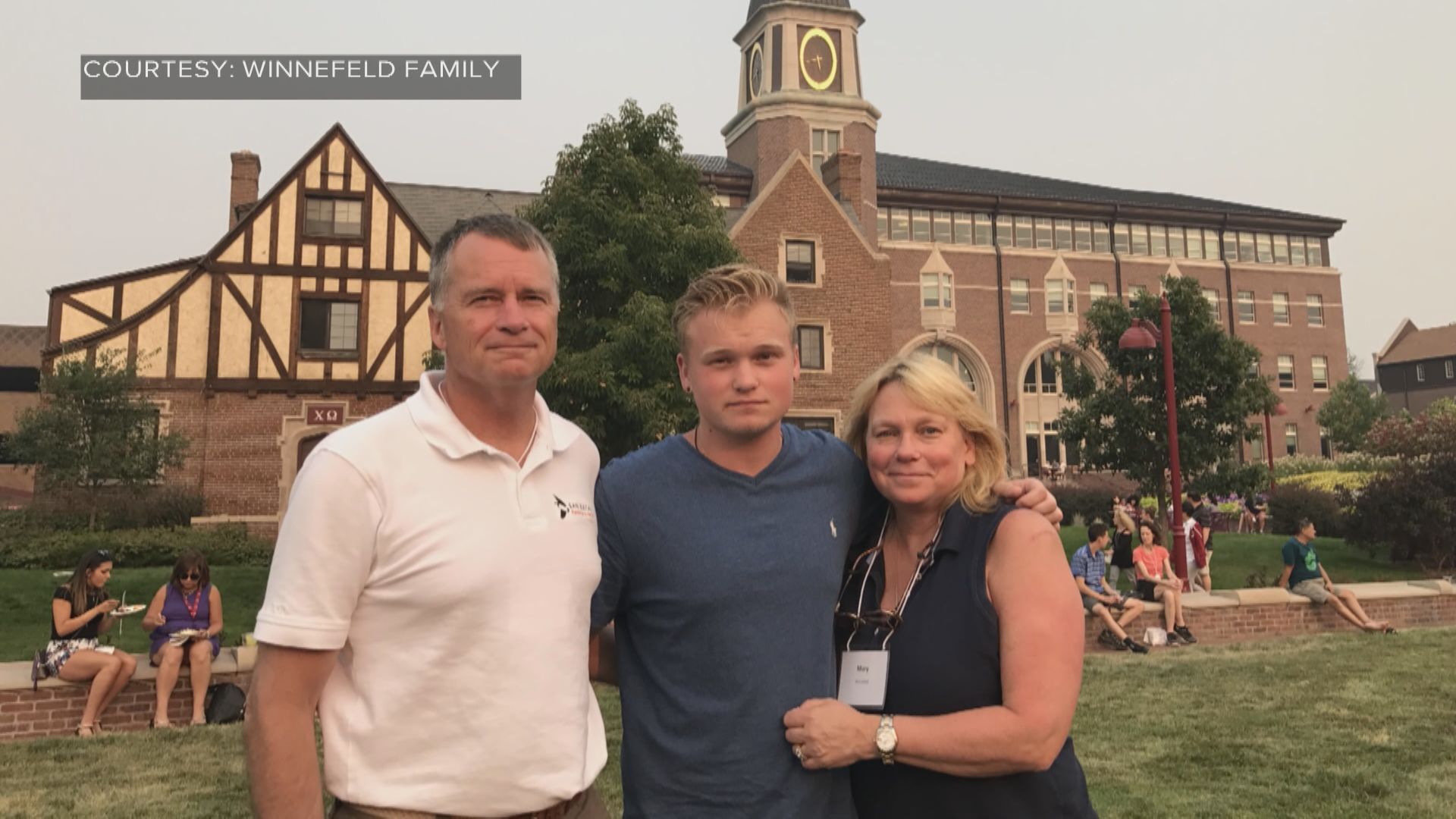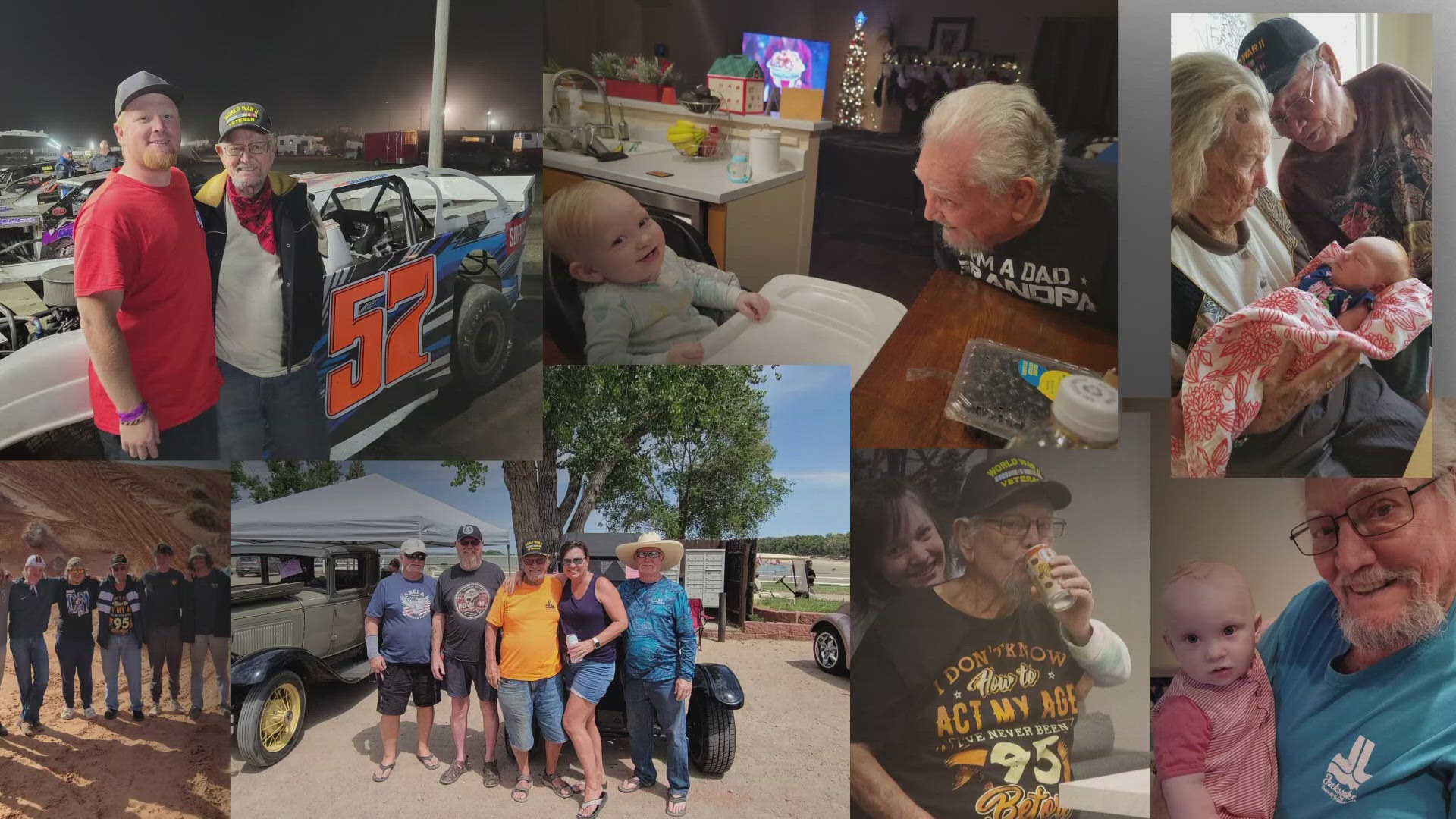Retired United States Navy Admiral James Winnefeld said he helped run the most powerful military on earth, but couldn't save his own son from an opioid addiction.
He first told his story in The Atlantic. Last week, he took the stage at an auditorium in Aurora to talk about his son who died in Denver.
"He grew up in a military family. Wonderful, wonderful kid," Winnefeld said of his late son, Jonathan.
He was a talented baseball player with a good heart. Jonathan Winnefeld was working on getting better, his dad said.
"He grew up with anxiety and depression and self-medicated," Winnefeld said.
Winnefeld chose to open the door to a tough conversation of how that led to his son's addiction. He hopes by sharing his loss, it saves another family from the same fate.

"It is hard, but I know this is what Jonathan would want us to do to help other people," he said.
Jonathan went through in-patient treatment. His parents were by his side to help him get settled at University of Denver last September. He overdosed that same month and passed away.
"How little did we know how deeply that opium molecule had borrowed into his brain," Winnefeld said.
It's for Jonathan his father stood in front of hundreds of people and talked about the tough lessons learned.
"What we missed was the transition out of treatment," Winnefeld said.
"This epidemic is going to be solved one community at a time, one school at a time, one businesses and one hospital at a time," Winnefeld continued.
Experts who have long studied this epidemic believe education and having conversations will help fight this problem.
Another part of it is physicians breaking bad habits. That's exactly what a new study set out to do.

Dr. Rob Valuck, an addiction expert, says roughly 70 percent of opioid addiction starts with leftover pills and a majority of heroin addictions are linked to opioids, nationally.
That trend is mirrored in Colorado.
In that local study, doctors and nurses at 10 emergency departments were given guidelines to use alternative treatments first for acute pain. In some cases, that includes a combination of Tylenol and Advil.
"Doing that rotation can get people 50 to 55 percent pain relief when opioids will get them 35 percent pain relief, which is the most we would expect," Valuck said, director of Colorado's Consortium for Prescription Drug Abuse Prevention.
A graph from the National Safety Council shows the combination of acetaminophen and ibuprofen is actually more effective than oxycodone on its own.
Preliminary study results show doctors and nurses administered opioid treatments around a third less over a six-month period compared to the same time frame in 2017. They did still prescribe opioids when they determined it was needed.

But even the alternative medications have side affects -- too much can cause kidney and liver problems.
This study still doesn't have all the data; they're still collecting patient satisfaction for their treatment.
The Colorado Hospital Association, Colorado Chapter of American College of Emergency Physicians, Colorado Consortium for Prescription Drug Abuse Prevention, Telligen and the Colorado Emergency Nurses Association were involved in this study.
Both rural and urban hospitals were involved including Boulder Community Health, Gunnison Valley Health, Sedgwick County Health Center, Sky Ridge Medical Center, Swedish Medical Center, UCHealth Greeley Emergency and Surgical Center, UCHealth Harmony Campus, UCHealth Medical Center of the Rockies, UCHealth Poudre Valley Hospital and UCHealth Yampa Valley Medical Center.


